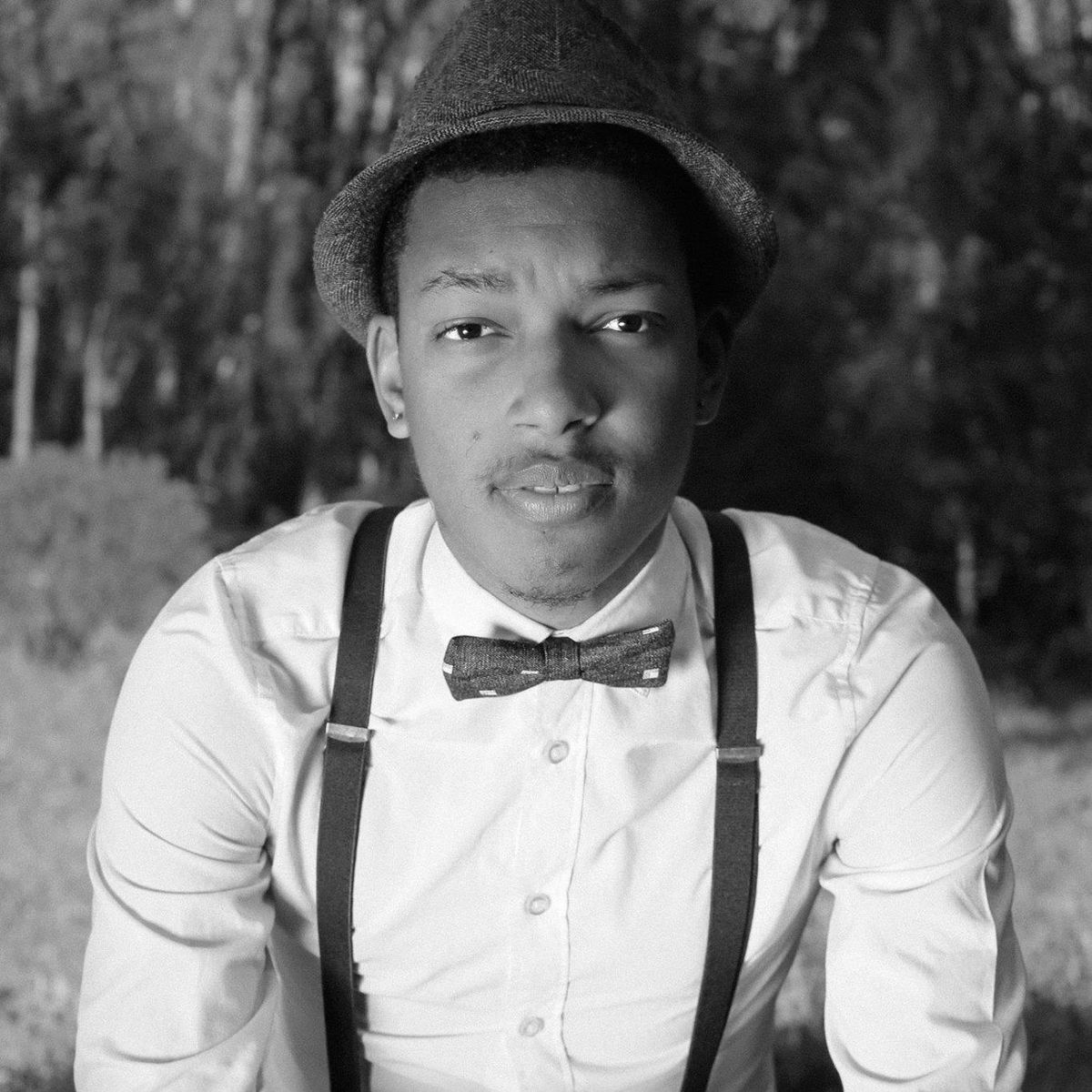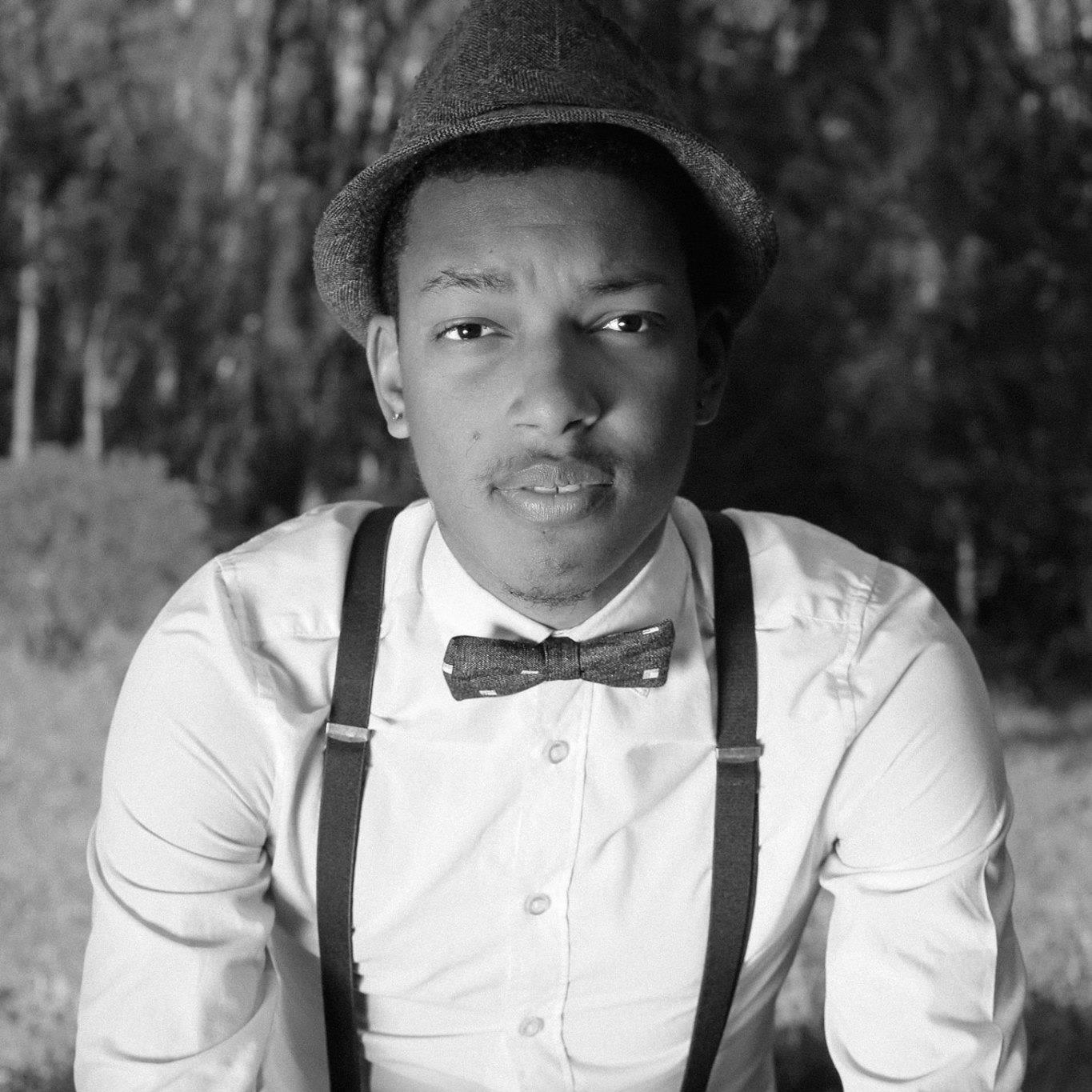Fresh Faculty: Watufani Poe
Watufani Poe is a Center for Humanistic Inquiry fellow and visiting lecturer in Black studies and Latinx/Latin American studies. He received a bachelor’s degree from Swarthmore College, a master’s degree and a Ph.D. in Africana studies from Brown University.


Q: Where do you call home?
A: Home is a complicated question, but I would define home as three areas. Southern California — I was born in Riverside, California, and a lot of my family is still down in San Diego; Philadelphia — I grew up in Philadelphia and … lived there until my early 20s; and then … Rio de Janeiro in Brazil, which is where I met my partner, where my partner’s family is from, and where my research takes me often.
Q: How long will you be here as a visiting lecturer?
A: I am here [at Amherst] for a year. The [Center for Humanistic Inquiry] fellowship generally is a two-year deal, but I’m actually heading on to a tenure track position at the University of Pittsburgh in the fall. So, this is my last semester at Amherst.
Q: What subjects are you currently teaching?
A: I am placed within the Black studies department and the Latinx and Latin American studies program. The class that I am currently teaching is within both of those and it’s also cross-listed with SWAGS [Sexuality, Women’s, and Gender Studies]. It’s called “Theorizing the Black Queer Americas.” The course really delves into how we think through the connections between histories of colonialism and enslavement that connect the Black, queer, and trans diaspora throughout the Americas. I remember when I was creating this class, I was thinking through the things that I have read up until now that have ignited my research. [I was thinking], ‘What are the new things that came out when I was writing my dissertation that I didn’t have any time to read that I’d like to read now with students?’ So a lot of the readings that I have on the syllabus are actually new to me myself. I feel comfortable delving into these readings with Amherst students because they’re brilliant and they ask really poignant questions that you’d expect of graduate students.
I’m thinking with you all, so I encourage my students to challenge me and to challenge one another so that we can think together and grow together. I’m interested in growing my own scholarship through having conversations with students in class.
Q: There is lots of interdisciplinarity in your interests — Africana studies, gender and sexuality studies, anthropology, and history. What sparked your interest in all of these fields?
A: I’d always been a fan of Zora Neale Hurston since I read “Their Eyes Were Watching God” in high school. I remember I was blown away in graduate school when I found out that Zora Neale Hurston was an anthropologist and really one of the founders, in my opinion, of thinking through the central tenets of Black American anthropology and thinking through the Black diaspora. So, when I saw the ways in which Hurston was thinking through, [I thought], ‘How do you research a community that you find yourself a part of? How do you research Black communities as a Black person? Understanding that there are times when you’ll be an insider and times when you’ll be an outsider and how do you navigate that?’
It brought me to really rich tellings of stories. I felt like the reason why we celebrate “Their Eyes Were Watching God” as a fiction text is because you can tell that [Hurston] spent time with these communities, that she would take the time to understand what’s important for people, how are people interacting, and even how do people speak? And so, there’s a richness to the kind of stories that she can tell. And so I was really interested in being able to tell the story similarly, or a community I find myself a part of, in a really rich, intense way.
And so, I was initially drawn to anthropology as my field of research. My advisor at Brown was also in the Africana studies department, but she was traditionally trained as an anthropologist. And then I think what brought me to history as well is that one of the professors on my dissertation committee who was actually one of the premier scholars of gay and lesbian history in Brazil, was a historian. I think reading his work also showed me the fine intricate detailing of history that I was really fascinated with. I kind of fell in love with these methods — archival research and oral history — so I was really, really interested in kind of tying those two methods together. My advisor always told me when I was in grad school that the most important thing to do as a scholar is to arrive at your research questions first: What are you asking? Why is this question important? And then you arrive at your methods: How do you answer that question? And so for me, I knew that the only way to answer the kinds of questions that I was asking was interdisciplinary. How do I understand both the current day issues and the historical issues that have been important for Black, queer, trans communities to self-define and find freedoms for themselves? I think that being with an advisor who was unapologetic about a kind of interdisciplinarity that was rooted in social science helped me to kind of really feel comfortable in doing that kind of work.
Q: What questions does your research tackle?
A: I came to my research questions after I graduated from undergrad at Swarthmore College. I spent two years in the Bay Area. What I saw is that while the largely white-led LGBTQ organizations that I was working with were trying to push forth a kind of racial justice mission, I saw them hiring a lot of Black people to come and push forth that mission, and then get pushed out of the organization for pushing for that mission. So there was this idea that these white-led organizations were about a kind of racial justice struggle, but when Black folks actually tried to push forth that struggle, they were punished for it. While I was going through that, I was also seeing on the other side of the bay, this really revolutionary reimagining of the Black movement that centered [around] a Black, queer feminist lens. Seeing these two things happening at the same time made me want to understand more: What were the kind of movement choices that Black, queer, and trans folks were making? What’s the radical potential of Black, queer, and trans leadership — Black, queer, and trans activism, whether they’re in leadership or whether they’re part of a movement? What’s coming from their lens that helps us to understand that intersectional radical approach to thinking through freedom?
I had also studied abroad in my junior year in Brazil. And I remember seeing so much more [of the] Black, queer, and trans movement than I was expecting to see, because I didn’t learn much about Black history in Brazil until I actually went to Brazil. So I was really interested in thinking about these questions, not just in the United States, but beyond the U.S. border. Brazil actually is the country that holds the largest Black population outside of Nigeria, even larger than some countries in Africa. That’s not something that is commonly talked about, partially because the elites in Brazil don’t want people to think of Brazil as a Black country. But it is in a lot of ways. So, I was really interested in connecting the United States and Brazil — two places that are often looked at in contrast — and to look at them, not just in comparison, but also relationally: How do we understand the kind of ways in which people on the bottom are pushing back against these power structures? How do we understand those ways as connected? Are Black, queer, and trans people in both places having conversation with one another? That makes the ways they’re pushing back similar. But also there are ways in which, even without conversation, the movement structures are similar, largely because of the similarity of how power works in both places.
Q: What were your motivations for coming to Amherst?
A: I went to Swarthmore, a small liberal arts college. In many ways, Amherst felt like somewhat of a return home. I think I was really interested in Amherst because Amherst is one of the top-rated small liberal arts colleges. I knew that I’d be working with a really capable and smart student body. Amherst also just did a whole bunch of new hires in Black studies — [Visiting Assistant Professor of American Studies and Black Studies] Jallicia Jolly, [Visiting Assistant Professor of Black Studies and Political Science] Jared Loggins, [Professor of Black Studies and History] Stefan [Bradley], [Associate Professor of Black Studies and History] Betsy [Herbin-Triant] — so it was exciting to be able to come on board with all of these wonderful scholars. I’ve been organizing this “Manifesting Black Queer Futures” symposium — we have our final event on May 5. It was really great to be in a place where I could organize with someone who would be interested in doing that. So, I think that Amherst has both been a tranquil place and a space for lots of collaboration. It’s been a great place to be.
Q: When you’re not doing research or teaching, how do you like to spend your free time?
A: This is a question [whose answer] has been changing since I’ve been in this area. A lot of the things that I like to do are urban — I like to go out with friends, go to bars, go to art stuff. There hasn’t been much of that here. This is the first time that I’ve lived in a non-city area. I’ve been learning a lot of new things that I didn’t know that I liked. My partner is a very outdoorsy person, and I wouldn’t have described myself as outdoorsy before I met my partner. But, now I’ve opened up to it and we’ve gone on a lot of hikes. We went up Mount Holyoke and a bunch of the other “Mounts” that I don’t remember the names of. It’s been a beautiful place to be able to explore nature. I think that [it] just brings a kind of calming to my spirit. I also love myself a good TV show. Whenever something new comes out on Netflix or Hulu, you better believe that I’m on it quick.” I just recently watched “Heartstopper” on Netflix — highly recommend!





Comments ()